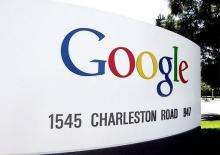'Tasks' software is Gmail Labs first graduate

Google Labs brainchild "Tasks" graduated from the sandbox on Tuesday as the Internet giant seeks to entice computer users to switch from packaged software to programs offered online as services.
Tasks is the first Gmail Labs project to become a fixture in Google's general free Web-based email and will be integrated with the firm's online Calendar service.
Gmail Labs was launched a year ago to let people tinker with software innovations being explored by engineers at the Mountain View, California, Internet colossus.
Enlisting users to try out software ideas is an extension of a practice referred to as "dogfooding" in which creations-in-progress are tested on "Googlers" in-house, said senior product manager Ken Norton.
The phrase comes from the concept of workers "eating their own dog food" by using their own products.
Gmail Labs has worked so well that Google is expanding on the practice by launching a Calendar Labs for its free Web-based personal scheduling software.
"Rather than us having to decide in a vacuum or a conference room at Google, we were able to get millions of users trying Tasks and telling us how to improve it," Norton said. "That feature is much better now as a result."
Tasks features include world clocks that keep track of time zones; alerting people to how much time is left before their next meeting, and letting people know whether colleagues they seek are "Free or Busy."
Norton was an early supporter of "Free or Busy," and the world clock software was designed after Google engineers in Europe urged peers in Mountain View to schedule video conferences at more accommodating hours.
Along with launching Calendar Labs, Google is opening some of the program's underlying software to business customers to let them build applications customized to their needs, according to Norton.
Gmail and Calendar are part of a suite of Google Apps offered online as services that spare users the cost and hassle of buying, installing, updating and maintaining programs on networks or personal computers.
"A lot of companies are migrating away from traditional server-based software," Norton said.
"What's driving it is the users wanting these apps because that is what they use at home and prefer, and management spending millions of dollars managing IT infrastructure."
Google's online applications are seen as a threat to sales of packaged or pre-installed software on which Microsoft built is global empire.
The Redmond, Washington-based firm on Monday announced that the 2010 version of its popular Office software will feature online collaboration as the technology giant duels "in the cloud" with Google.
A key upgrade to widely-used Office is that online hosting will make it possible for users to access projects from any Internet-linked computers and to collaborate online in real time.
Office Web applications will be lightweight, browser versions of Word, PowerPoint, Excel and OneNote that provide access to documents from anywhere, according to Microsoft.
There will be online "co-authoring" capabilities in Word, PowerPoint and OneNote.
Microsoft's current version, Office 2007, allows online collaboration, but not in the real-time manner promised by its successor.
Microsoft on Tuesday revealed what it will charge for users of a Windows Azure cloud computing service it is to launch by the end of this year. Pricing schemes ranged from usage-based to monthly fees.
(c) 2009 AFP


















